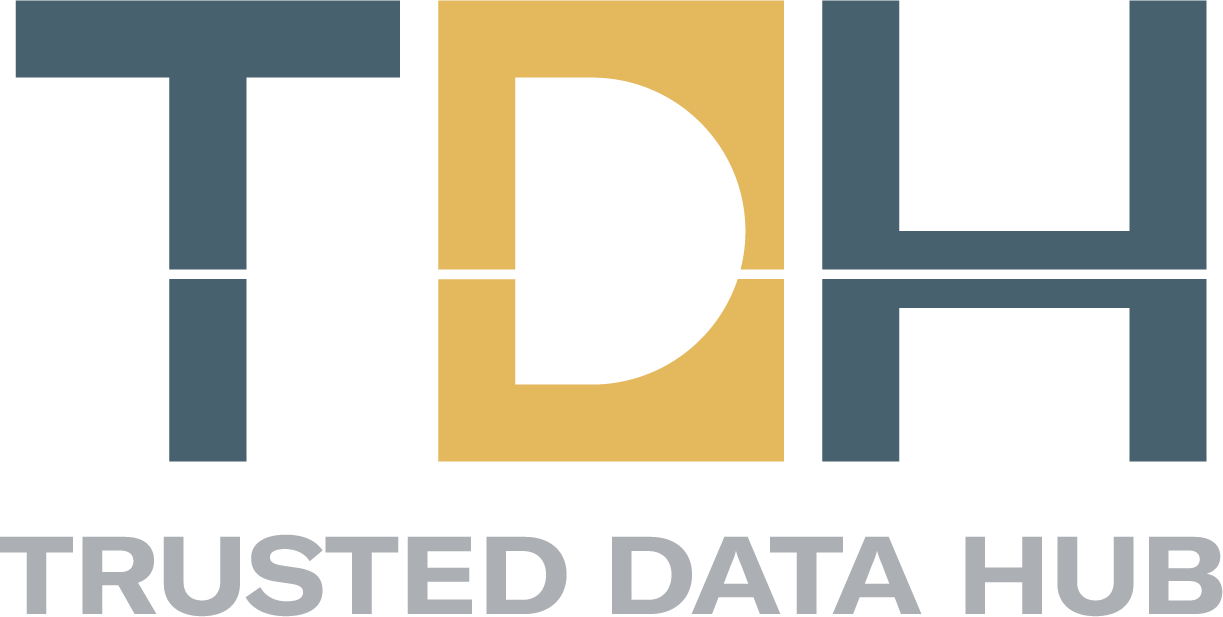Introduction
In an era characterized by soaring data volumes and accelerated AI adoption, effective governance is no longer optional, it’s foundational. A 2024 IDC report found that 87% of organizations expect generative AI to transform their business, yet by 2027, 60% risk failing due to weak governance frameworks (Collibra, 2024c). The rise of “shadow AI” unmanaged, opaque AI tools, only intensifies the need for robust governance systems (Collibra, 2024a).
Platform Giants at a Glance
Among commercial solutions, Collibra is a clear standout, recently named a Leader in Gartner’s inaugural Magic Quadrant for Data & Analytics Governance Platforms (Collibra, 2024b). It offers an enterprise metadata graph, seamless data and AI governance workflows, and granular policy enforcement mechanisms that scale across both business and technical teams. IBM’s watsonx Governance platform and Informatica’s CLAIRE AI also provide automated metadata intelligence, lineage, and compliance workflows (IBM, 2024; Informatica, 2024).
Why Companies Choose Vendor Solutions
Speed to Implementation & ROI
These platforms offer out-of-the-box connectors, automated metadata capture, and pre-built workflows, cutting implementation time from months to weeks or even days. On platforms like Reddit, engineers frequently note that third-party tools deliver quicker development timelines and predictable costs compared to in-house builds (Reddit, 2024).
Built-in AI and Compliance
Leading vendors have embedded AI governance features as automated lineage, model monitoring, explainability, and compliance. For example, Collibra’s AI Governance suite supports end-to-end traceability and alignment with regulations like the EU AI Act (Collibra, 2024a). OneTrust similarly advocates for context-first governance models that provide compliance-by-default (OneTrust, 2024).
Enterprise Support and Risk Reduction
Vendor platforms come with enterprise service-level agreements (SLAs), dedicated support, regular security updates, and integrations aligned with regulatory frameworks. Organizations benefit from reduced risk exposure and operational overhead (Gartner, 2024).
The Custom-Build Alternative
Flexibility and Control
Custom builds allow full control and deep customization, often aligning with proprietary needs or security considerations. Companies like HPE have reported success building their own AI tools, saving significantly and maintaining full control over sensitive data (FT.com, 2024).
Hidden Burdens
Despite initial flexibility, in-house solutions come with burdens: hiring specialized talent, developing internal compliance monitoring, and maintaining updates as laws evolve. VerifyWise (2024) and Consilien (2023) highlight the constant need for staffing and compliance vigilance.
Security and Maintenance
Security and lifecycle management are often better handled by seasoned vendors. Without robust in-house teams, companies risk falling behind regulatory requirements (Saifr, 2024).
AI Support: Platform vs. Custom
Vendor Platforms
Collibra, OneTrust, and IBM Watsonx offer automated compliance, lineage tracking, and risk mitigation features built into their platforms. These include audit trails, risk scoring, and explainability reports that support fast compliance (Collibra, 2024a; OneTrust, 2024; IBM, 2024).
Custom Stacks
Custom builds offer tailored AI governance solutions but require deep expertise. HPE’s in-house model succeeded because of existing AI maturity and data sensitivity (FT.com, 2024). Still, most companies lack the internal capacity to match vendor capabilities (Saifr, 2024).
Regulatory Landscape
Automated governance tools help keep pace with fast-changing global regulations like the EU AI Act, CCPA, and GDPR. Gartner (2024) and the World Economic Forum (2024) underscore the importance of regulatory alignment and ethical risk mitigation.
Skills Gap
The World Economic Forum (2024) and Deloitte warn of a shortage in AI governance skills, making vendor solutions more feasible for many. Without skilled personnel, maintaining AI governance in-house becomes a significant liability (Consilien, 2023).
Cost & Risk Trade-Offs
Total Cost of Ownership
Though DIY appears cost-effective, long-term expenses often exceed those of vendor solutions due to hidden costs like DevOps, maintenance, and regulatory updates. Archive360 (2024) reports custom builds may cost 3–4x more over five years.
Vendor Lock-In
Vendor lock-in is a real concern, migration is difficult and expensive. Still, platforms deliver rapid innovation and regulatory compliance, which may outweigh switching costs (ISACA, 2024; Moravio, 2023).
Compliance Agility
Vendor platforms continuously update for compliance changes, which is difficult to replicate internally. This makes them preferable in heavily regulated sectors (Gartner, 2024; VerifyWise, 2024).
Strategic Focus
McKinsey and Tridens Technology report that in-house builds often exceed budgets and underperform on value delivery (Tridens Technology, 2023). Vendor solutions free teams to focus on data strategy rather than software engineering.
Real-World Case Studies
HPE (Custom Build)
HPE’s legal team developed an internal AI tool for contract analysis that proved cheaper, faster to fix, and more secure than external options (FT.com, 2024; Arya.ai, 2024).
Staples Canada & Repsol (Buy)
Staples opted for a vendor solution (Luminance), citing faster ROI and reduced complexity. Repsol moved from in-house to Harvey for scalability and reduced internal burden (FT.com, 2024).
SIGNAL IDUNA + Collibra (Platform)
SIGNAL IDUNA adopted Collibra to centralize metadata and improve data access, cutting time from weeks to hours (Collibra, 2024b; Kubrick Group, 2024).
Conclusion: Toward a Hybrid Future
The governance question is no longer “if,” but “how fast” and “how well.” Platform giants offer scalable, AI-ready solutions with embedded compliance, ideal for most enterprises. Custom builds suit niche cases where control and sensitivity outweigh maintenance costs.
The future likely lies in hybrid models: vendor platforms as backbones with custom overlays for specific needs. In governance, the winners won’t be those who build faster or buy smarter, but those who align their strategy with data maturity, risk, and innovation goals.
References
Archive360. (2024). Top 10 data governance and compliance predictions for 2024. https://www.archive360.com/blog/top-10-data-governance-and-compliance-predictions-for-2024
Arya.ai. (2024). The AI agent dilemma: Build vs. Buy. https://arya.ai/blog/ai-agent-dilemma-build-vs-buy
Collibra. (2024a). AI agents: Build or buy? Governance remains critical. https://www.collibra.com/blog/ai-agents-build-or-buy-governance-remains-critical
Collibra. (2024b). Collibra named a leader in the Gartner Magic Quadrant for Data and Analytics Governance Platforms. https://www.collibra.com/company/newsroom/press-releases/collibra-named-a-leader-in-the-first-ever-gartner-magic-quadrant-for-data-and-analytics
Collibra. (2024c). Understanding the importance of data governance in the age of AI. https://www.collibra.com/us/en/blog/understanding-the-importance-of-data-governance-in-the-age-of-ai
Consilien. (2023). AI governance frameworks: A guide to ethical AI implementation. https://consilien.com/news/ai-governance-frameworks-guide-to-ethical-ai-implementation
FT.com. (2024). Companies weigh build vs. buy in AI governance tooling. https://www.ft.com/content/b5ec2894-3628-4083-90ff-d671533c3da8
Gartner. (2024). The benefit of implementing an AI governance framework. https://www.gartner.com/peer-community/post/benefit-implementing-ai-governance-framework
Gimmal. (2023). AI governance vs data governance: Understanding the differences and opportunities. https://gimmal.com/ai-governance-vs-data-governance-understanding-the-differences-and-opportunities
IBM. (2024). IBM named a leader in the 2024 Gartner Magic Quadrant for Data and Analytics Governance Platforms. https://www.ibm.com/new/announcements/ibm-named-a-leader-in-the-2024-gartner-magic-quadrant-for-data-and-analytics-governance-platforms
ISACA. (2024). Cloud data sovereignty: Governance and risk implications of cross-border cloud storage. https://www.isaca.org/resources/news-and-trends/industry-news/2024/cloud-data-sovereignty-governance-and-risk-implications-of-cross-border-cloud-storage
Kubrick Group. (2024). Case study: Collibra at SIGNAL IDUNA. https://www.kubrickgroup.com/us/what-we-do/case-studies/collibra
Medium (ZS Associates). (2024). Should data and AI governance councils be separate? https://medium.com/zs-associates/should-data-and-ai-governance-councils-be-separate-3f4bec727e00
Moravio. (2023). Vendor lock-in: Hidden costs and how to prevent them. https://www.moravio.com/blog/vendor-lock-in-hidden-costs-and-how-to-prevent-them
OneTrust. (2024). AI governance starts with context, not just infrastructure. https://www.onetrust.com/blog/ai-governance-starts-with-context-not-just-infrastructure
Reddit. (2024). Build vs. buy for data governance tooling? [Discussion thread]. https://www.reddit.com/r/dataengineering/comments/1e8irz1
Saifr. (2024). Building vs. buying AI: What to consider. https://saifr.ai/blog/building-vs.-buying-ai-what-to-consider
Signal Iduna. (2023). Customer story: Data intelligence with Collibra. https://www.collibra.com/customer-stories/signal-iduna
Tridens Technology. (2023). Build vs buy software: Pros, cons, and hidden costs. https://tridenstechnology.com/build-vs-buy-software
VerifyWise. (2024). Build vs. buy: Which AI governance tool is right for your business? https://verifywise.ai/ai-governance-tool-build-vs-buy
World Economic Forum. (2024). AI governance: Trends to watch in 2024. https://www.weforum.org/stories/2024/09/ai-governance-trends-to-watch


Leave a Reply